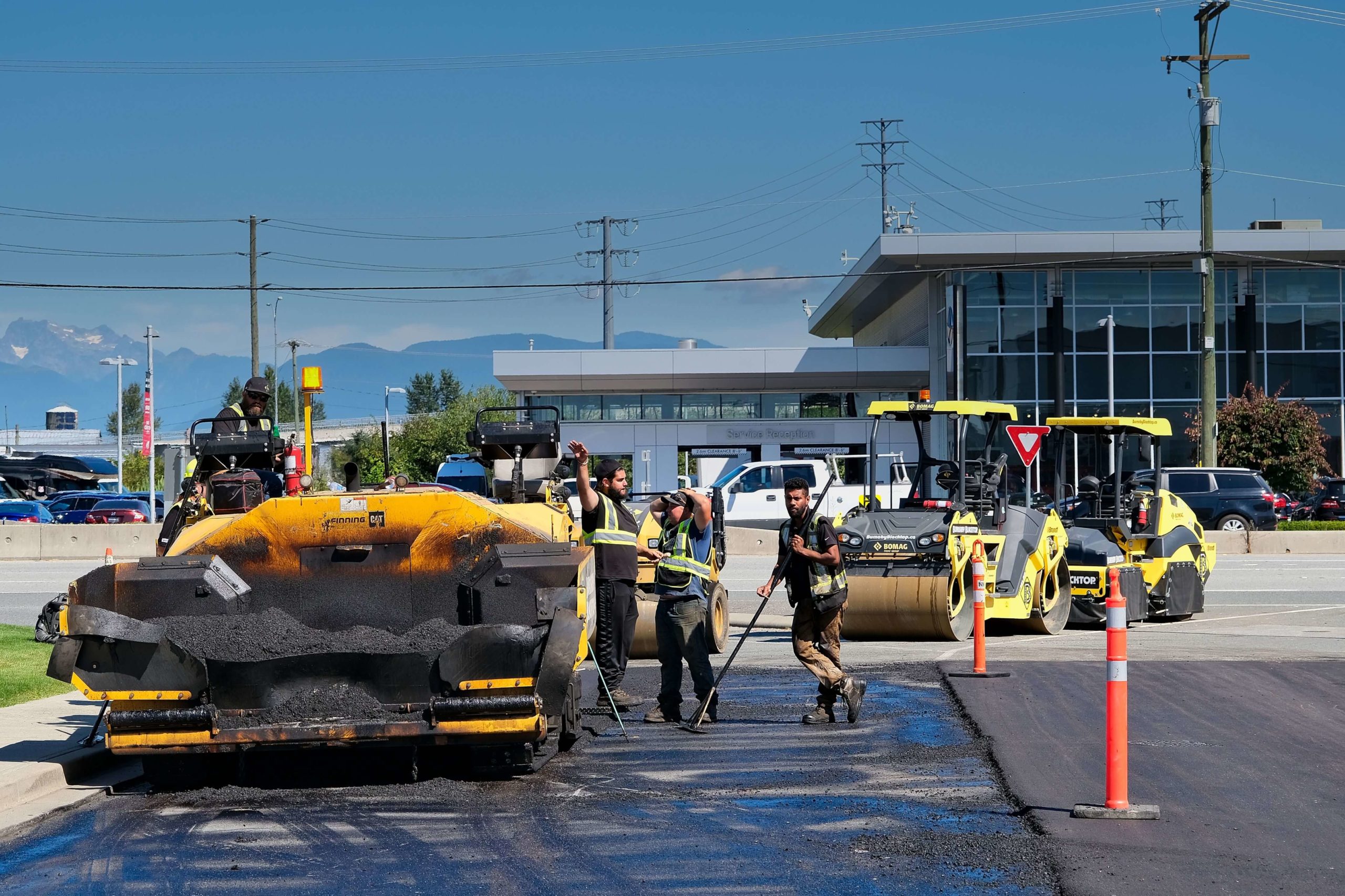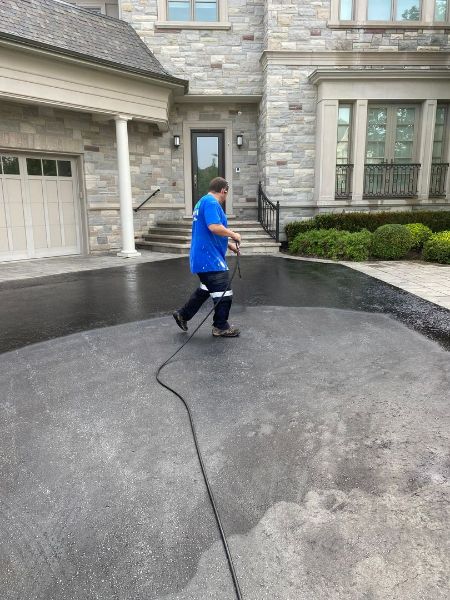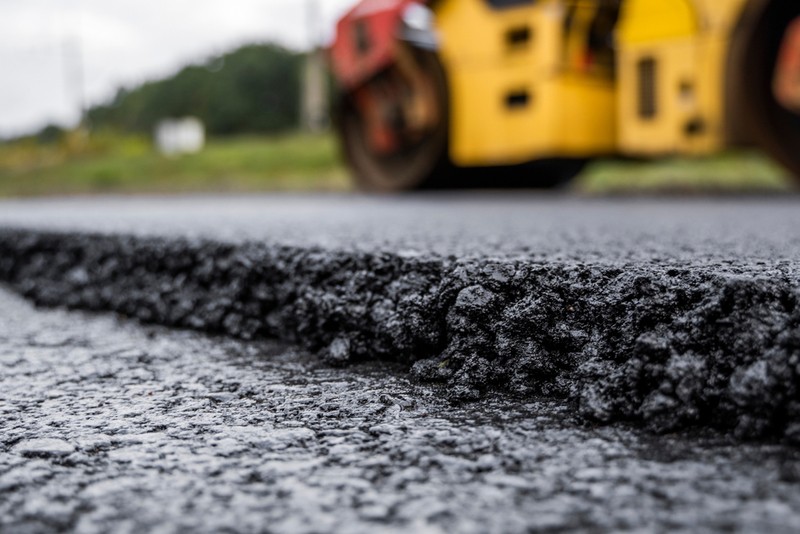Unlock the Tricks of Asphalt Sealing: Optimizing Hot Mix Asphalt Durability
Unlock the Tricks of Asphalt Sealing: Optimizing Hot Mix Asphalt Durability
Blog Article
Warm Mix Asphalt: A Sustainable Remedy for Sidewalk
Hot Mix Asphalt (HMA) has emerged as a leading sustainable option for sidewalk remedies, providing a myriad of environmental benefits and cutting-edge modern technologies. As the need for eco-friendly construction techniques expands, discovering the subtleties of HMA's sustainability can give important insights into the future of sidewalk remedies.
Environmental Benefits of Hot Mix Asphalt

In Addition, Hot Mix Asphalt helps to minimize urban warmth island impacts. Its dark color takes in sunshine, decreasing the quantity of warmth mirrored back right into the atmosphere contrasted to lighter-colored sidewalks. This can decrease ambient temperature levels in city areas, reducing the need for a/c and ultimately minimizing energy consumption.
In enhancement, Warm Mix Asphalt adds to enhanced stormwater monitoring. Its permeable nature permits water to reenergize and penetrate the sidewalk groundwater products, decreasing overflow and the danger of flooding. These environmental benefits make Hot Mix Asphalt a sustainable selection for leading roadways and highways.
Energy Effectiveness in HMA Manufacturing
Is energy performance an important consider the manufacturing of Warm Mix Asphalt (HMA)? Definitely. Energy plays a significant duty in the production of HMA, impacting both expense and ecological sustainability. One vital aspect of power performance in HMA manufacturing is the usage of warm mix asphalt (WMA) innovations (hot mix asphalt). WMA enables the blending and positioning of asphalt at lower temperature levels compared to conventional warm mix asphalt, causing decreased energy usage throughout manufacturing. This procedure not only decreases fuel use but likewise reduces greenhouse gas exhausts, making it an extra eco-friendly alternative.
Furthermore, innovations in plant technologies have led to more energy-efficient HMA production processes. By maximizing energy usage in HMA manufacturing, the sector can reduce its carbon footprint while keeping top notch pavement products.
Recyclability of Warm Mix Asphalt
The recyclability of Warm Mix Asphalt (HMA) is a crucial aspect of its sustainability and long-lasting ecological impact. HMA is among one of the most recycled materials in the United States, with over 100 million lots of redeemed asphalt pavement (RAP) being recycled yearly in new pavement building and construction. Reusing HMA uses several environmental advantages, such as minimizing the need for virgin materials, reducing energy consumption during production, and decreasing the amount of waste sent to land fills.
The process of recycling HMA entails grating the existing sidewalk, squashing it right into smaller sized pieces, and blending it with brand-new aggregate and asphalt binder to produce a recycled mix. In general, the recyclability of HMA plays a significant role in advertising lasting practices within the sidewalk sector.

Long-Term Efficiency of HMA
Asphalt pavements show sturdiness and durability over an extended period, reflecting the lasting efficiency of Hot Mix Asphalt (HMA) Furthermore, improvements in HMA innovation, such as the use of polymer-modified binders and cozy mix asphalt, have better enhanced the resilience and longevity of HMA pavements. By prioritizing top quality construction and upkeep practices, HMA continues to prove itself as a sustainable and economical service for durable pavement facilities.

HMA: Resilience and Sustainability
Demonstrating both resilience and sustainability, Warm Mix Asphalt (HMA) has actually ended up being a foundation in the building and construction of lasting pavement frameworks - angled parking. HMA's resilience comes from its capacity to stand up to heavy loads, harsh climate condition, and high traffic quantities, making it a trustworthy selection for highways, freeways, and airport terminal paths. The composition of HMA, which usually includes accumulations, binder, and filler, plays a vital function in improving its long life and resistance to put on and tear
Furthermore, HMA's sustainability exists check my site in its recyclability and energy-efficient manufacturing process. The ability to recycle redeemed asphalt sidewalk (RAP) in new HMA blends decreases the need for virgin products and decreases the environmental effect of pavement construction and maintenance. In addition, the power efficiency of creating HMA hinges on its reduced blending temperatures compared to other pavement products, resulting in decreased energy intake and greenhouse gas emissions.
Final Thought
In conclusion, warm mix asphalt (HMA) offers a lasting solution for pavement with its eco-friendly qualities. HMA's recyclability, power performance in production, and long-term sturdiness make it an environmentally friendly selection for road construction. By preserving natural sources, decreasing waste, and decreasing greenhouse gas emissions, HMA plays a vital role in promoting original site sustainability in facilities growth. Its ability to alleviate urban warmth island impacts better underscores its importance in producing eco aware and durable sidewalk systems.
HMA is one of the most recycled products in the United States, with over 100 million heaps of redeemed asphalt pavement (RAP) being recycled annually in new sidewalk building and construction.The procedure of recycling HMA includes grating the existing sidewalk, squashing it into smaller items, and blending it with new aggregate and asphalt binder to develop a recycled mix.Asphalt pavements show longevity and strength over an extensive period, mirroring the long-term performance of Warm Mix Asphalt (HMA) In addition, innovations in HMA innovation, such as the use of polymer-modified binders and warm mix asphalt, have even more boosted the longevity and durability of HMA pavements. The capacity to reuse reclaimed asphalt sidewalk (RAP) official site in brand-new HMA combinations decreases the demand for virgin products and minimizes the environmental influence of sidewalk construction and upkeep.
Report this page